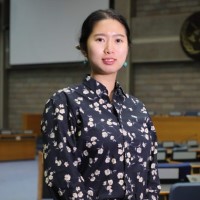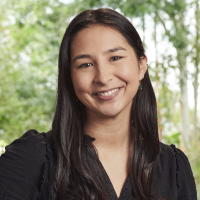Abdulla Al Ishaq
PhD Project Title: Environmental and Economic Assessment of Road Electrification in Qatar
PhD Project Summary: The aim of this research is to quantitively assess the environmental and economic impacts of the electrification of road transport in Qatar. It is intended that the research findings will contribute to the development of a framework or toolkit designed to inform policy / decision makers about the impacts of electrification. The research aims to show whether it will be beneficial to electrify the transport sector in-part, or as a whole, or not, given the country’s specific circumstances such as the high Gross Domestic Product (GDP) per capita, cheap oil and gas prices. Inter alia, the research will look at calculating the Vehicle Miles Travelled (VMT), CO2 emission factors, GHGs, air pollutants, Total Cost of Ownership (TCO). In order to explore the emissions associated with different pathways, the project will also utilize the European Calculator (Euro-Calc) approach along with the potential impact of various policy decisions to extrapolate future emissions and energy scenarios.
Supervisor: Jem Woods
Ahmed AlJameel
 PhD Project Title: Designing Market-Based Mechanisms for Enhancing the Economic Viability of Alternative Drop-in Fuels for Aviation Decarbonisation
PhD Project Title: Designing Market-Based Mechanisms for Enhancing the Economic Viability of Alternative Drop-in Fuels for Aviation Decarbonisation
PhD Project Summary: This research aims to develops a data-driven computational model to evaluate the extent to which existing market-based mechanisms (MBMs) in aviation can induce economic tipping points for alternative drop-in fuel (SAF and LCAF) cost competitiveness, and to identify optimal policy combinations that enhance cost parity, stimulate demand, and incentivise investment. It draws comparative lessons from international and national carbon market policies in aviation including CORSIA, the EU ETS, and the UK ETS by analysing their design features, implementation challenges, and observed outcomes with regards of supporting the uptake of alternative drop-in fuels. Also, the research aims to propose new MBM designs tailored to Saudi Arabia’s aviation ecosystem and simulates SAF and LCAF adoption trajectories across the national fleet in Saudi Arabia using a novel agent-based model (ABM) that integrates behavioural, economic, and policy dynamics. This research will contribute to a deeper understanding of the factors shaping effective climate policy design in the aviation sector that support the uptake of alternative drop-in fuels.
Supervisor: Gbemi Oluleye
Andrea Biancardi
 PhD Project Title: The evolution of European electricity Transmission System Operators amid the energy transition
PhD Project Title: The evolution of European electricity Transmission System Operators amid the energy transition
PhD Project Summary: This PhD looks at the innovation of European electricity Transmission System Operators (TSOs), which play a key role in meeting growing demand for greener and affordable power and for the development of a smarter and reliable electricity system. Due to the radical transformations occurring in the sector TSOs must increasingly invest in research and innovation and evolve by embracing new technologies, new activities and new business models.
Supervisor: Iain Staffell
Wan Izar Haizan binti Wan Rosely
PhD Project Title: Towards Sustainable Management of Urban Wastewater: Enhancing Stakeholder Participation Through Systems Thinking Perspective
PhD Project Summary: "Realising our visions and plans to build sustainable and resilient cities in the future requires an understanding of the interaction between water and urban systems. Systems thinking allows a better understanding on the response and trade-offs of proposed interventions to these human and the earth systems which can be effectively managed through participatory methods. The complexity derived from multiple influential factors on urban wastewater management can also be understood through systems thinking. Furthermore, an appropriate understanding on the interaction of the urban wastewater system and its natural environment will enable rethinking and redesigning of solutions to address its challenges.
Central to the application of systems thinking perspective is the involvement of stakeholders or actors inside and outside the traditional water sector. However, due to numerous challenges and approaches, collaborative stakeholders’ involvement in water management found to be varied in its success. Therefore, this PhD project will explore the application of systems thinking perspective and participatory approaches to address urban wastewater management challenges. Some of the policy- or decision-making tools such as the Driver-Pressure-State-Impact-Response Framework, Stakeholder Analysis, Multi-Criteria Decision Analysis and several systems methodologies will be reviewed for adoption to design the stakeholder participation processes for this study."
Supervisor: Nick Voulvoulis
William Brandreth
PhD Project Title: Manging uncertainties over the risks that BECCS presents to food security, land use, and GHG emissions/removals
PhD Project Summary: BECCS is a greenhouse gas removal technology that produces energy from biomass while capturing and storing the resulting CO2 underground. It plays a major role in the UK’s net zero pathways and policy development. However, a critical uncertainty with BECCS is how the increased demand for biomass and land will affect key sustainability criteria that include food security, land use change and GHG emissions/removals.
Given the complexity of land use and energy systems, the impact of BECCS will depend upon how it is deployed, where it is deployed, and interactions with factors including dietary choices, crop and livestock production, bioenergy, and forestry.
The research investigates if and how these uncertainties surrounding BECCS can be managed through empirical data, spatial assessments, systems modelling and GHG accounting.
Supervisor: Jeremy Woods
Adam Brighty
PhD Project Synergies between climate mitigation and air quality strategies.
PhD Project Summary: The UK's plans for net zero carbon emissions by 2050 can be achieved through a combination of different societal and technological changes. Given that some net zero strategies may be more beneficial for UK air quality than others, it is important to select the correct policy direction that improves air quality whilst achieving our net zero goals. Adam's research attempts to predict how the UK's air quality will change up to 2050 as a result of potential net zero strategies.
Adam's research is funded by Defra under the Support for National Air Pollution Control Strategies (SNAPCS) contract and is aligned to the Science and Solutions for a Changing Planet DTP at the Grantham Institute.
Supervisor: Helen Apsimon
Ben Chapple
PhD Project Title: Nature-based tourism in a changing climate: costs and benefits for endangered species
PhD Project Summary: My project aims to assess the positive and negative impacts of nature-based tourism, using African wild dog as a study species. Wild dogs are endangered, wide-ranging carnivores, requiring large areas of habitat for their survival; many such areas are heavily reliant on tourism to fund their conservation. However, wild dogs also appear to be particularly vulnerable to the effects of climate change, and tourism has been estimated to account for up to 8% of global carbon emissions. This species therefore provides an excellent model system for studying the contradictory impacts of nature-based tourism. Using this model system, my project aims to investigate the positive and negative impacts of nature-based tourism on African wild dogs and the social-ecological system in which they exist. This should help to guide policy on what role nature-based tourism should play in supporting conservation within shrinking carbon budgets.
Supervisor: Caroline Howe
Abigail Croker
 PhD Project Title: Institutions, Governance, and Policy for Addressing Wildfire Challenges in a Changing Global Environment
PhD Project Title: Institutions, Governance, and Policy for Addressing Wildfire Challenges in a Changing Global Environment
PhD Project Summary: East African savannas are complex socio-ecological systems that have historically been, and continue to be, influenced by colonialism. Fire is a central component of these systems; alongside temperature and rainfall, fire is an important disturbance event that drives and shapes the savannas' soil and vegetation nutritional gradient. Humans have co-evolved with fire, altering vegetation and fuel loads to generate mutual socio-ecological benefits. However, in recent years, a combination of anthropogenic climate change and fire management frameworks and policies - the latter being deeply embedded in wildlife conservation paradigms based on colonial ideologies and objectives - have engendered novel fire events above natural variability levels. This thesis takes a systems thinking approach to explore how (in)direct colonialism has shaped contemporary burning practices and fire regimes, specifically focusing on the political-ecology and -economy of East African savanna landscapes, and the opportunities for equitable governance and local decision-making in community-based fire management frameworks.
Supervisor: Ioannis Kountouris
Matilda Dunn
 PhD Project Title: Investigating the barriers and opportunities to integrating and mainstreaming biodiversity across the UN systems plans, partnerships and operations.
PhD Project Title: Investigating the barriers and opportunities to integrating and mainstreaming biodiversity across the UN systems plans, partnerships and operations.
PhD Project Summary: While the UN’s Sustainable Development Goals were established to be an indivisible whole, integration across the different goals within the UN systems’ plans and operations remain a challenge, particularly when it comes to the integration of goals related to biodiversity. My PhD research aims to analyse the UN systems’ contributions to biodiversity-related SDGs in order to understand what actions can be implemented or scaled to better integrate and mainstream biodiversity across the UN’s plans and operations. This research will primarily focus on the barriers and trade-offs to integrating biodiversity across the UN systems at both the UN-agency operations level as well at cross-agency partnerships level. The outcomes of this research will be used to develop an improved “System-Wide Framework of Strategies (SWFS) on the Environment” to help accelerate progress towards the 2030 Sustainable Development Agenda, as well as provide a foundation for integrating biodiversity across UN operations and partnerships that can be further utilised beyond 2030.
Supervisor: Caroline Howe
Ebba Engstrom
PhD Project Title: Growing green in UK vineyards: Managing Knowledge
PhD Project Summary: The project explores the sustainability impacts of green infrastructure in vineyards in the UK and knowledge management surrounding these structures. More precisely, the project has explored the perceived and experienced multi-dimensional sustainability impacts of green infrastructures in UK vineyards, and is currently investigating knowledge acquisition and learning surrounding these elements among UK winegrowers. It is intended for the project to increase the understanding of the experiences of green infrastructures in winegrowing contexts, and to better support the development of learning related to the topic in the UK wine industry. The project holds strong policy relevance, especially in the current UK context with roll-out of the Environmental Land Management schemes, as knowledge and learning hold a key role in shaping agriculturists' practices.
Supervisor: Robert Fish
Frederick Fabian
Hongwei Fan
Supervisor: Audrey de Nazelle
Elizabeth Fonseca
PhD Project Title: Effects of future agricultural scenarios on air quality and ecosystem protection
PhD Project Summary: Agriculture is a key sector in terms of air quality, biodiversity and climate change. It is the dominant source of ammonia resulting in modification of the cycling of nitrogen in the environment with major consequences for biodiversity, and atmospheric chemical reactions producing small particles with adverse effects on human health. Agriculture is also a large source of greenhouse gas emissions such as nitrous oxide and methane, playing a crucial role in net zero climate pathways and competing future land uses. A shift in diet away from meat and dairy products between now and 2050 may also result in significant changes in the agricultural sector, with potential implications for healthy diets and obesity. What the UK’s agricultural sector will look like in 2050 is therefore highly uncertain. The aim of this studentship will be to define potential future scenarios and explore the resulting consequences with respect to the UKs climate change, air quality and biodiversity targets. Comparison will be made with related work in other European countries.
The studentship will be based in the Integrated Assessment Unit of the Centre for Environmental Policy at Imperial College, and will draw on expertise within a Defra research consortium including the UK Centre for Ecology and Hydrology, UKCEH. It will have access to modelling undertaken for Defra including use of the UK Integrated Assessment Model, UKIAM, developed to model future UK emission scenarios with respect to ecosystem protection and human health. It will require good computing skills and a good degree in a relevant discipline, plus a strong interest in computer modelling and protection of the natural environment.
Supervisor: Helen ApSimon
Rongjin GAO
 PhD Project Title: Towards 2035 goals: Systematic assessment and optimization of current water management practices in China
PhD Project Title: Towards 2035 goals: Systematic assessment and optimization of current water management practices in China
PhD Project Summary: This study explores the hypothesis that "management issues may affect the resolution of various water problems in China." Using methods such as text mining, case studies, and literature review, it examines China’s water management system from both a “written governance” and “actual governance” perspective. The case study focuses on water pollution, highlighting the efficiency and impact of different local management models.
By applying these findings, the study seeks to quantify the effects of management on water issues and assess whether China can meet its 2035 national goals. From the system thinking approach, this research finally aims to integrate global experiences—such as the concept of integrated water management—and provide a more advanced management framework and policy recommendations. The study hopes to offer guidance to decision-makers from China and other regions which facing similar challenges, helping to improve governance models, enhance management efficiency, and ensure sustainable water resource use.
Supervisor: Nick Voulvoulis
Cornelea Godon
PhD Project Title: Climate-resilient Water Management in Malaysia
PhD Project Summary: The impact of climate change on water resources is a significant challenge for countries worldwide, including Malaysia. As a tropical country, Malaysia is vulnerable to climate variability and change, which could lead to severe impacts on water resources. This research aims to investigate strategies to enhance Malaysia's climate-resilient water management by comparing three elements that are implemented in the United Kingdom and Malaysia. The study will focus on three (3) strategies, which will be integrated into a conceptual framework to improve water management in Malaysia. The outcomes of this research will provide policymakers and practitioners with recommendations to enhance climate-resilient water management in Malaysia.
Supervisor: Karen Makuch
Co-Supervisor: Zen Makuch
Henry Grub
 PhD Project Title: Social-ecological-systems approach to badger management in England
PhD Project Title: Social-ecological-systems approach to badger management in England
PhD Project Summary: Henry’s PhD focuses on the control of bovine tuberculosis (bTB) disease in the UK. The Government aims to pivot bTB control to focus on developing new tests and vaccines for cattle herds in the medium-to-long-term, and deploying badger vaccination programmes in the short-to-medium-term. The aim of Henry's research is to build a ‘social-ecological-system’ (SES) analysis of the situation, by understanding how these different control mechanisms could work in tandem in the future, and by considering different stakeholder opinions.
Xinyi Guo
PhD Project Title: The UK's municipal waste management system and policy—responding to epidemic
Supervisor: Nick Voulvoulis
Victoria Hoare
 PhD Project Title: Are climate calculators effective decision support tools, facilitating the creation of climate-effective land management?
PhD Project Title: Are climate calculators effective decision support tools, facilitating the creation of climate-effective land management?
PhD Project Summary: The land sector is responsible for ~25% of global GHG emissions making it one of the largest contributing sectors. As such, it is important to understand the ways in which the land sector can be used to mitigate climate change, either through the reduction of GHG emissions, or through the uptake of atmoshperic CO2 through sequestration. This research seeks to understand the actual and perceived effectiveness of land-based policy creation and implementation in the past five years, and the role that climate calculators have played within this. Climate calculators are decision support tools (DST) that are designed to facilitate policy creation and highlight different pathways to net-zero carbon emissions. Uncertainty around the utility of climate calculators for climate-smart land sector decision-making, leaves a disconnect between establishment of national climate mitigation targets and the mechanisms by which they are achieved. Highlighting the utility of the climate calculator will ensure that it is the right DST being used and the best way in which to use it to maximise its efficiency.
Supervisor: Jem Woods
Co-Supervisor: Caroline Howe
Usman Jahun
PhD Project Title: A critical examination of the legal and policy response to Climate Change under the Nigerian environmental law.
PhD Project Summary: My research seeks to critically examine the legal & policy response to Climate Change under the Nigerian environmental law. It is aimed at investigating if & how the existing climate change law & policies have been able to address the local circumstances & legal realities of stakeholders; analysing Nigerian initiatives in counteracting climate change vis-à-vis what other countries are doing; establishing ways in which international legal frameworks can contribute to the Nigerian law; developing an enhanced & context-based multi-stakeholder legal framework; as well as developing a special focus on loss & damage strategy as Nigeria has historically been the victim vis-à-vis the country’s continued reliance & export of fossil fuels.
The focus of the research is on three questions: a. Whether the existing Nigerian legal framework comprehensively address the threat posed by climate change? b. What are the Nigerian National 'initiatives' within the broader context of Nigeria's international commitments to counteracting climate change? and c. How does international law contribute to the Nigerian legal framework for the control of climate change
The questions above are based on the significant role played by law and policy in transforming science and technology’s findings into rules and regulations that guide human behaviour.
Other key interests of my research are the level of implementation of Nigerian law & policies in counteracting climate change, energy transition and sustainable development. I am also looking closely at the transferability & generalizability of the research to other countries.
Supervisor: Karen Makuch
Co-Supervisor: Zen Makuch
Abha Joglekar
PhD Project Title: Why should we plant trees?
PhD Project Summary: Large-scale land restoration efforts are concentrated in the tropics and sub-tropics, yet it is unclear how these regions will respond to and implement restoration at scale. This research focuses on restoration initiatives in Brazil and India and aims to document, a) why individual landholders engage in restoration, b) the perceived and actual impacts of restoration initiatives, and c) multi-actor perspectives on scaling restoration practices in the region. The research uses a mixed methods approach combining surveys and semi-structured interviews. While the interviews will enable a qualitative understanding of the adoption process, the surveys are designed on the social sciences theory of Diffusion of Innovations (Rogers, 2003) which will link the characteristics of the adoption process as well as relative preferences among landholders. This will help in the design and implementation of restoration projects that are likely to scale. Further, a comparison of case studies in India and Brazil will enable an understanding of what works in different socio-ecological contexts. This is particularly important in the broader context where India and Brazil are significant contributors to global restoration goals but have very different experiences of forest restoration to date.
Supervisor: Morena Mills
Laila Kasuri
 PhD Project Title: Rites, rights and re-writing water: Towards meaningful participation and inclusion of Indigenous peoples in global water governance
PhD Project Title: Rites, rights and re-writing water: Towards meaningful participation and inclusion of Indigenous peoples in global water governance
PhD Project Summary: Participation and stakeholder engagement are well-embedded concepts in water management rhetoric. This has been reflected in key water declarations and initiatives, at local, national and international levels. However, not all participatory processes are inclusive and can in fact exclude certain groups, particularly Indigenous peoples and communities, for whom water holds central importance. The lack of meaningful participation and inclusion of Indigenous peoples in water governance processes would perpetuate the idea that water is a mere ‘resource’ that can be controlled, and sideline Indigenous and relational values and knowledge systems. The aim of this research is to understand and develop principles for meaningful participation and inclusion of Indigenous peoples in water governance processes especially at the global level and understand how Indigenous processes which are often local can shape multilateral processes around water governance.
Supervisor: Alex Collins
Jarmo Kikstra
PhD Project Title: Safe and Social Living: the individual operating space in the context of Climate Change
PhD Project Summary: "The aim of this research is to explore and develop pathways of transformation towards a world where the global society lives without exceeding the carrying capacity of the earth while meeting basic human needs for all.
For this, the project builds upon the Decent Living Standards framework, with a focus on energy. This allows for unifying a social foundation and an ecological ceiling in a coherent framework in such a way that it becomes operational for modelling with a direct link to individual level. "
Supervisor: Joeri Rogelj
Roselyn Yinglin Li
 PhD Project Title: Assessing the implications of urban transport climate policies in cities on public health outcomes
PhD Project Title: Assessing the implications of urban transport climate policies in cities on public health outcomes
PhD Project Summary: This research tackles the pressing challenge of transforming urban road transportation to meet both environmental and public health goals in the face of climate change. Concentrating on global cities from 2020 to 2050, this work aims to bridge the knowledge gap on how transportation policies affect long-term health outcomes across diverse regions. Through innovative modelling and the integration of comprehensive datasets, this project will develop standardized policy scenarios that not only drive decarbonization but also deliver substantial health benefits. These insights will equip policymakers with a scalable, evidence-based roadmap, helping reshape urban transportation systems to achieve climate targets and improve public health worldwide.
Supervisor: Audrey de Nazelle
Co-Supervisor: Joeri Rogelj
Liam Kirkpatrick
PhD Project Title: Investigating the Cultural Ecosystem Services of Urban Blue Space: Policy Planning for Climate Change, Biodiversity and Nature-based Solutions
PhD Project Summary: "This is an interdisciplinary PhD exploring the use of Cultural Ecosystem Services (CES) for improving environmental policy understandings. The value of urban water is increasingly becoming overlooked in favour of urbanisation land use strategies, with various integral ecosystem services subsequently coming under threat. Moreover, contemporary climate change risk highlights a need for this wide range of urban water ecosystem services.
However, a failure to acknowledge key socio-political dimensions of urban water tends to run through these discourses, to the detriment of sustainable land use planning. With an aim to help inform policy, this project focuses on how investigating CES within urban blue space may contribute to developing social and environmental health and wellbeing, as well as strengthen understandings of the concept itself. Across various fieldwork sites, the project also investigates interactions that draw climate change adaptations and mitigations, nature-based solutions and biodiversity into the wider CES framework.
Working in close collaboration with the Environment Agency, this research helps to address a key research gap they have identified regarding the value of water and its management in urban areas. Investigation is warranted to assist with the control and application of urban water resources under sustainable and climate-conscious land use planning."
Supervisor: Alexandra Collins
Co-Supervisor: Clive Potter
Juliana Martins
 PhD Project Title: Implications of the nighttime traffic restriction on the highway BR-174 within the Waimiri-Atroari Indigenous Territory for local communities and biodiversity conservation
PhD Project Title: Implications of the nighttime traffic restriction on the highway BR-174 within the Waimiri-Atroari Indigenous Territory for local communities and biodiversity conservation
PhD Project Summary:
My project examines the impact of the Waimiri-Atroari (WA) indigenous community's night traffic restrictions on the BR-174 highway in promoting human rights, justice and biodiversity conservation in the Amazon rainforest, Brazil. Built during the military dictatorship for the colonisation of the north, the BR-174 led to a major genocide, with nearly 90% of the WA community killed. Since 1984, the WA have blocked the highway from 6 pm to 6 am to ensure the safety of the community and the protection of wildlife, despite legal threats and social conflict.
Ecologically, few studies have assessed the impact of highways in the Amazon, where expanding roads and deforestation threaten the survival of species. This project will assess the impact of the blockade on biodiversity by analysing animal collisions and the barrier effect on local mammals, using camera traps to monitor species at different distances from the road. On the social front, we will conduct interviews and focus groups to understand the motivations, conflict roots and governance success factors surrounding the road closure. We will also compare safety perceptions between WA residents along the road and along the river.
The project aims to provide lessons for road policy in high biodiversity areas, conflict management strategies and governance guidelines applicable to other Amazonian indigenous communities.
Supervisor: Morena Mills
 PhD Project Title: Conceptualising a novel policy framework for de-risking investment in CCUS and Blue Hydrogen for decarbonising hard-to-abate sectors.
PhD Project Title: Conceptualising a novel policy framework for de-risking investment in CCUS and Blue Hydrogen for decarbonising hard-to-abate sectors.
PhD Project Summary: Since the Paris Agreement in 2015, governments have pledged to limit global temperatures rising to around 1.5⸰C and doing so by reducing their greenhouse gas emissions. Decarbonising end-use sectors has since become a priority, accompanied by deployment of clean technologies. While efforts have increased the technology readiness levels, policy frameworks remain an unquestionable challenge, necessary for investments and the creation of a market driving the demand for technologies. In short, clean technologies must be reach cost parity with conventional technologies. In that context, this project will investigate the possibility of decreasing the costs associated with CCUS and blue hydrogen, as an alternative technology, by creating policy induced demand-pull to ensure hard to abate sectors can cost effectively capture zero and align with the Paris Agreement. Therefore, the main research problem will be to evaluate on a global level with plant specificity policy interventions for CCUS and blue hydrogen diffusion to reach a tipping point in four major hard-to-decarbonise industries: chemicals (ammonia and methanol), iron & steel, and cement. These market-based policies include a carbon tax, emissions trading scheme (ETS), tax credit, carbon contracts for difference (CCfDs), grants, among others. From data analysis to modelling the optimisation on Python, this research endeavours the development of Participatory Spatio-Temporal Market Penetration Optimisation Framework, thus situating itself at the intersection of the technological, economic and social components of effective policies evaluating and enhancing countries performance until 2050.
Supervisor: Gbemi Oluleye
 PhD Project Title: Quantifying damages from wildfires
PhD Project Title: Quantifying damages from wildfires
PhD Project Summary: "Haleema is a PhD student undertaking research in Economics. Her research focuses on quantifying and monetising damages from wildfires using environmental valuation methods. Her research also aims to investigate the macro-economic impacts of wildfires, specifically on labour markets and income.
Prior to this, Haleema studied a BSc in Physical Geography with an MSc in Economics and Energy Policy at UCL."
Supervisor: Ioannis Kountouris
Jorge Moreno
PhD Project Title: Environmental SDG interactions in Paris compliant development pathways
PhD Project Summary: "Along with the Paris Agreement, which aims to hold the average global temperature increase to well below 2°C , the 2030 Agenda is increasingly becoming a framework around which international development institutions can structure their benchmark objectives. By studying the interactions of multiple earth-human systems, it will be possible to identify how they are linked and design feasible pathways for achieving several goals simultaneously.
My PhD thesis aims to provide information on how interactions of the natural resource base might be affected in mitigation scenarios transitioning from a scenario dominated by the commitments of the Nationally Determined Contributions (NDC) to scenarios aligned with the Paris Agreement. I will focus on the regional interconnections of the Climate-Land-Energy-Water systems in decarbonisation pathways to progress towards SDG and try to understand what synergies should be leveraged and what trade-offs should be tackled to take into account the natural resource base while efficiently transitioning towards a low-carbon society."
Supervisor: Jem Woods
Hannah Murdock
PhD Project Title: Analysis of policy measures and behaviour change for decarbonising the transport sector among major greenhouse gas emitters
Supervisor: Iain Staffell
Ngoc Thuy Nguyen
PhD Project Title: Reducing the Social Inequities in Greenspace Use and Access: A Co-Design Approach
PhD Project Summary: Urban green spaces play a significant role in improving the liveability of cities and connecting urban dwellers back to nature. However, there is differential usage and access to green spaces between social groups, with large and high-quality green spaces being disproportionately posited in wealthier areas. This pattern can exacerbate the poor living conditions of certain groups, including the economically disadvantaged and the minority people.
The issue of equity in urban green spaces is crucial for its impacts on community well-being. It is also an important measure of environmental justice and is particularly relevant to countries with huge income disparities such as the UK and Vietnam. To encourage greater equity in greenspace access and usage, this research examines the social characteristics of the disengaged and investigates the needs and barriers they currently face. It will take a participatory approach to engage different stakeholders in designing green spaces that are accessible and usable for different population groups.
Supervisor: Alexandra Collins
Co-supervisor: Tilly Collins
Juliet Norman
PhD Project Title: Ecosystem Risk Assessment- Using the Redlist of Ecosystem Model for application
PhD Project Summary: "My work is centered around Ecosystem risk assessment . Using the Red list of ecosystem (RLE) model for application. Am studying the dynamics in land use and land cover change (LULC) for the protected areas- Gola Rainforest National Park (GRFNP) and Tiwai Island Wildlife Sanctuary (TIWS), in Sierra Leone West Africa by interpretation of spatial data. Maps will be created that compares the LULC situation in years 2000–2016 and these will be used to Identify which parts of the two protected areas have been deforested or degraded through time.
These focused studies will form the basis for the creation of a robust framework for RLE assessments that may be deployed generally for African tropical ecosystem..
Am adopting two models for this research- a state and transition model and an ecosystem risk assessment model. A detailed description of the ecosystem is essential to ensure a repeatable application of the model. Clear information on the ecosystem classification and description will be provided. The assessment will also cover all the four elements that describes the ecosystem, including the threat and collapse state of the ecosystem. The four elements to be considered include: characteristic native biota, abiotic environment, key processes and interactions, and spatial distribution.
My lead supervisor is professor Mark Burgman assisted by Dr Minerva Singh, but I will be closely working with Dr Aniko Toth and David Keith at the Centre for Ecosystem Science (CES) at University of New South Wales (UNSW). both are members of CES group that leads an extensive global network in the evolution of the Ecosystem Risk
Assessment protocol and pioneered the development of the internationally recognized Red List of Ecosystems"
Supervisor: Minerva Singh
Co-Supervisor: Mark Burgman
Sofia Palazzo Corner
PhD Project Title: Incorporating climate catastrophe: representing tail-end Earth system behaviour in simple climate models
PhD Project Summary: Tail-end behaviour in the Earth system, which could lead to catastrophic climate change, is not well represented in simple climate models. This project aims to update our understanding of tail-end behaviours that could lead to high warming outcomes, contribute to a simple climate model to better represent one or more of these sub-system behaviours, and hence work to define the fat tail of climate change uncertainty.
Supervisor: Joeri Rogelj
Erika Piroli
PhD Project Title: The human drivers of wildfire - a focus on policy makers’ incentives
PhD Project Summary: "Fire prevention and forest regulations requires an active commitment and strict enforcement from governments at different levels. My research aims to understand if and how policy-makers’ incentives and commitments to promote sustainable forest management and wildfire regulations and policies change around election periods, showing the presence of political cycles, and along the international borders.
Specifically, this research will investigate whether the incentives of politicians change before and after the election periods and across the political borders, analysing the wildfire occurrence. The research will empirically analyse the relationship among election, property rights, national and international borders, and wildfire occurrence. More specifically, the study is going to deal with the following questions:
• Do politicians’ re-election incentives affect wildfire occurrences?
• Are fires more likely on State, Federal or private wildlands?
• Do we obtain similar wildfire outcomes with both a Republican and a Democrat candidate running for re-election?
• Do we experience similar wildfire occurrence at the international/federal borders?"
Supervisor: Ioannis Kountouris
Bethany Reyniers
 PhD Project Title: Grape Britain: UK viticulture in an era of climate change
PhD Project Title: Grape Britain: UK viticulture in an era of climate change
PhD Project Summary: The UK viticultural industry has undergone rapid growth in recent years due to changes in climate, making areas suitable for grape growing, with this trend only projected to increase. However, effects of adverse weather events, such as late spring frost, may occur during critical grapevine developmental stages and can have significant effects on yield and quality. This PhD project explores how the UK viticultural industry is adapting to a changing climate, and what adaptive management strategies can be implemented to ensure sustainable expansion of the sector. Using a mixed methods approach, there will be an exploration of how the UK grape growing and wine making industry is currently managed, as well as investigating the priorities and perspectives of producers. Through undertaking case studies and developing frameworks, outputs from this project will include recommendations of how vineyards can be future-proofed whilst also maintaining environmental integrity and improving sustainability practices.
Supervisor: Caroline Howe
Co-Supervisor: Tilly Collins
Alvaro Roel Bellot
PhD Project Title: Adoption and spread of ecosystem restoration and its implication for decision making.
PhD Project Summary: This PhD focuses on understanding the factors driving the adoption, spread and abandonment ecosystem restoration interventions amongst lanholders, as well as on how to optimise the deployment of these interventions in space, using woodland expansion efforts in the UK as a case study. The main objective of his research is to produce key insights to inform the design, priorities and delivery of future ecosystem restoration efforts to maximise environmental and social benefits and minimise costs. Contributing to unleash the huge potential of ecosystem restoration to address the current global environmental crises and enhance biodiversity and human well-being.
Supervisor: Morena Mills
Antanas Sabanas
PhD Project Title: Assessment of sustainable innovation policy implications towards the hydrogen economy
PhD Project Summary: Research focuses on sustainable innovation policy's implications towards a low-carbon economy. It aims to critically assess different transition pathways by validating success rates among alternative technologies through various scenarios. The transition involves mitigation of other stakeholders' priorities and proper stakeholder engagement strategies, especially at the early stages of identifying critical bottlenecks for technologies to be adopted at a broader scale.
Supervisor: Zen Makuch
Eirini Sampson
 PhD Project Title: The Heating Transition in England: Assessing Risk and Stakeholder Preferences
PhD Project Title: The Heating Transition in England: Assessing Risk and Stakeholder Preferences
PhD Project Summary: The United Kingdom faces several environmental and socio-economic challenges as a result of unmitigated climate change. Currently, the UK is facing an energy efficiency crisis as the country has the oldest housing stock in Europe with around 38% of homes being built before 1946. There are approximately 8.5 million ‘hard-to-treat’ dwellings in Britain (approximately 30 % of the total housing stock), responsible for around 50% of carbon emissions from the domestic sector. At the same time, one-third of greenhouse gas emissions in the United Kingdom can be attributed to heating, as 74% of United Kingdom households receive their heating from gas central heating. Nonetheless, only 5% of the UK’s total heat demand in buildings is met by low-carbon sources today. Due to the close relationship between household consumers' comfort, privacy, culture and income and heating decarbonisation, this research aims to investigate the heating transition in England from an energy justice lens.
Supervisor: Zen Makuch
Karl Scheifinger
 PhD Project Title: From collective imagination to collective action: Co-created scenario narratives that drive climate action
PhD Project Title: From collective imagination to collective action: Co-created scenario narratives that drive climate action
PhD Project Summary: This PhD project explores innovative ways to co-create climate mitigation scenarios that motivate stronger collective action. Focusing on justice and wellbeing, I aim to develop new tools and methods to include diverse public perspectives in climate scenario narratives.
Using novel participatory approaches, I seek to create more inclusive, credible and actionable climate scenarios.
Supervisor: Joeri Rogelj
Julian Smart
PhD Project Title: Optimizing Carbon Dioxide Removal (CDR) Pathways in a Race to Net Zero
PhD Project Summary: In a world where Carbon Dioxide Removal (CDR) features in the majority of Integrated Assessment Models (IAMs), it is paramount to understand their strengths and limitations. This project aims to understand CDR processes and how they can be scaled to the gigaton levels required to meet Paris Agreement targets.
The novelty of this interdisciplinary project is that it is at the crossroads of chemical engineering, carbon markets, finance, and policy, intending to develop frameworks to operationalise large-scale CDR deployment. The project also aims to identify project-based risks in the value chains of each method, build price-optimal net-zero aligned portfolios of CDR, understand how private capital can be accessed, and recognize risks posed by CDR towards the natural environment and society.
Supervisor: Nick Voulvoulis
Jonathan Swinney
 PhD Project Title: Doing business with nature: an investigation into the promotion and adoption of Climate-Smart Forestry in the Scottish commercial forestry sector
PhD Project Title: Doing business with nature: an investigation into the promotion and adoption of Climate-Smart Forestry in the Scottish commercial forestry sector
PhD Project Summary: The PhD contributes to work on the private governance response to addressing climate change. This involves investigating the significance of the new emergent forestry paradigm called Climate-Smart Forestry (CSF) in science and policy, and understanding the economic trade-offs of implementing CSF in the commercial forestry sector.
Supervisor: Clive Potter
Gail Sucharitakul
 PhD Project Title: Minimising trade-offs and conflicts in nature-based solutions: an investigation of value pluralism in nature credit markets
PhD Project Title: Minimising trade-offs and conflicts in nature-based solutions: an investigation of value pluralism in nature credit markets
PhD Project Summary: Nature-based Solutions (NbS) have been highlighted as potential solutions that can simultaneously contribute to climate, biodiversity, and human well-being objectives. Despite this potential, NbS face challenges with scaling up due to limited finance, particularly from private sources which currently represent ~20% of finance for NbS. Increasing private finance through nature credit markets, such as voluntary carbon or biodiversity credit markets, has been advocated for by proponents of NbS. However, nature credit markets have risks associated with trade-offs between economic, social, and environmental objectives which at times has resulted in “win-lose” or even “lose-lose” outcomes. These trade-offs are further influenced by power asymmetries between stakeholders who may value nature differently. If nature credit markets are to work effectively to enable “win-win” outcomes from NbS, they need to minimise ecosystem service trade-offs and conflicts between stakeholders. The aim of this PhD is to investigate how nature credit markets can be designed using values-based approaches to be more effective at enabling NbS to deliver “win-win” outcomes.
Supervisor: Caroline Howe
Paisan Sukpanit
 PhD Project Title: The contribution of the land sector to Thailand's climate change mitigation
PhD Project Title: The contribution of the land sector to Thailand's climate change mitigation
PhD Project Summary: Paisan Sukpanit is a Research Postgraduate in the Centre for Environmental Policy at Imperial College London investigating the roles of land biosphere in climate change mitigation. He is a technical support in the International 2050 Calculator Programme, where countries are supported to build their national carbon calculator as a tool to explore national decarbonisation pathways. He currently assists Thailand, Malaysia and Nigeria in their national calculator's developments.
Supervisor: Jem Woods
Zhenyu Tan
 PhD Project Title: Optimal Demand-side Policy Interventions to Accelerate the Market Uptake of Hydrogen Fuel Cell Vehicles: Interdisciplinary Evidence from Modelling and Experiments
PhD Project Title: Optimal Demand-side Policy Interventions to Accelerate the Market Uptake of Hydrogen Fuel Cell Vehicles: Interdisciplinary Evidence from Modelling and Experiments
PhD Project Summary: This research investigates optimal policy interventions to accelerate the market uptake of hydrogen fuel cell vehicles (HFCV) to decarbonise road transport. Whilst financial and non-financial interventions have been recommended for HFCVs, it is unknown how they can optimally stimulate HFCV adoptions until market saturation. To bridge this gap, this research employs a novel multi-layer participatory approach, including modelling and social experiments. By the end of the project, its significant outcome will help design and implement effective policies and determine business strategies to accelerate the take-up of HFCVs cost-effectively. The successful penetration of HFCVs will not only help decarbonization in intense-use vehicle segment, which is now hard to abate, but also stimulate an economy by strengthening an HFCV industry.
Supervisor: Gbemi Oluleye
Antigoni Theocharidou
 PhD Project Title: Integrating Greenhouse Gas Removals (GGRs) Into The UK Emissions Trading System (UK ETS)
PhD Project Title: Integrating Greenhouse Gas Removals (GGRs) Into The UK Emissions Trading System (UK ETS)
PhD Project Summary: Integrating GGRs into the UK ETS presents both opportunities and challenges. While it offers a flexible mechanism for meeting net-zero targets, the success of GGR integration depends on the regulatory framework, market incentives, and the development of scalable GGR technologies. This research provides a foundation for policymakers to design a robust, fair, and efficient carbon market that supports the UK’s transition to a net-zero economy.
This PhD investigates the potential impact and implications of integrating Greenhouse Gas Removals (GGRs) into the UK Emissions Trading Scheme (ETS) as a mechanism to meet the UK’s ambitious net-zero emissions targets. GGRs, which involve the capture and storage of CO₂ from the atmosphere, are gaining attention as essential tools for addressing hard-to-abate emissions and offsetting residual emissions.
The primary objective of this research is to assess how including GGRs in the UK ETS could influence carbon prices, market dynamics, and the behavior of key stakeholders. This study aims to:
- Analyse the economic impact of GGRs on the UK carbon market, including price fluctuations and the supply-demand balance of allowances and credits.
- Explore the sectoral implications, particularly for industries that are highly carbon-intensive or face significant compliance costs.
- Evaluate policy mechanisms, regulatory constraints, and market incentives that could facilitate the effective integration of GGRs into the UK ETS.
For carbon-intensive industries, the inclusion of GGRs may offer a cost-effective compliance pathway, reducing their reliance on costly abatement measures. However, this could also lead to competitive distortions, particularly for sectors with limited access to GGR technologies. This research highlights the importance of careful policy design to ensure that GGR integration supports the UK’s long-term climate goals without undermining the integrity of the carbon market.
Supervisor: Niall Mac Dowell
Michel Valette
PhD Project Title: Environmental management, conservation and restoration initiatives within fire-prone landscapes: evaluating fire management approaches to improve social and environmental outcomes
PhD Project Summary: The PhD will explore the complex relationships between environmental policies and fire regimes in the Brazilian Amazon. More specifically, remote sensing will be used to assess the impact over time of the environmental policies which reduced deforestation rate of the Brazilian Amazon since 2004, as well as different conservation governance regime (such as community-based forest management, indigenous land and protected areas), on the wildfire occurrence. This will be complemented by fieldwork to investigate the use of fire by local communities, its importance for the livelihoods and the evolution of fire management by local communities regarding changing climatic conditions, agricultural opportunities, and environmental regulations. Finally, the performance of MODIS and VIIRS sensor to observe fire regimes in the Amazon will be compared to alternative sources of information.
Supervisor: Morena Mills
Co-Supervisor: Jem Woods
Samuel Watkins
PhD Project Title: Future proofing urban neighbourhoods – Evaluating the role of community co-design in delivering multiple environmental and social benefits from flood resilience schemes
Supervisor: Alexandra Collins
Leonardo Zea Reyes
 PhD Project Title: Integrating health beneficial climate synergetic policies into city planning
PhD Project Title: Integrating health beneficial climate synergetic policies into city planning
PhD Project Summary: Health is recognized as one of the most basic human needs and as such it is of vital importance to the very existence of cities. The wider context (socio-economic, genetics, nutrition) at interplay with urban design (density, infrastructure, green space), behaviour (transport choice) and pathways (air pollution, noise, temperature) factors influence the morbidity and mortality of individuals. For instance, some of the health effects of air pollution are cardiovascular and cerebrovascular disease and chronic respiratory disease. Current knowledge on the relationships between climate change and health has reached a point where it is necessary to move forward towards translating this knowledge into science-based policies and effective implementation on the ground. Therefore, the objective of this study is to undertake a comparative case study analysis in order to better understand the challenges and opportunities of integrating health beneficial climate synergetic policies (adaptation and mitigation) into city planning using a systems approach. A systems approach means bringing people together to identify challenges, co‐benefits, trade‐offs and arrangements which would make solutions likely to happen.
Supervisor: Audrey de Nazelle
Co-Supervisor: Clive Potter
Riqi Zhang
 PhD Project Title: Developing and implementing Land Use, Bioenergy, and Food Security Interventions to inform China’s Carbon Neutrality Transition
PhD Project Title: Developing and implementing Land Use, Bioenergy, and Food Security Interventions to inform China’s Carbon Neutrality Transition
PhD Project Summary: China aims to achieve carbon neutrality by 2060, necessitating concerted efforts across all sectors, particularly the land use sector. This research focusses on developing and implementing interventions in land use, bioenergy, and food security to support this goal. Employing predictive modelling, the study evaluates the impact of bioenergy policies and dietary habits on greenhouse gas emissions from the land use sector. The project's objective is to balance land use, bioenergy, and food demand, providing viable recommendations for policymakers. This approach ensures sustainable land-use pathways in China, addressing the necessary synergies and trade-offs to achieve carbon neutrality.
Supervisor: Jem Woods
Quinn Zheng
 PhD Project Title: Future Global Energy Dynamics: The Role of Emerging Economies
PhD Project Title: Future Global Energy Dynamics: The Role of Emerging Economies
PhD Project Summary: This PhD explores the rising energy demands of emerging economies as they strive to reach the levels of development as those of developed countries. It examines the relationship between energy consumption and economic growth, highlighting challenges such as limited energy access and geopolitical influences.
The research focuses on analysing past and current energy trends, projecting future consumption patterns, and assessing the global impact of increased energy use in developing countries. It will also explore the geopolitical factors affecting energy distribution and consumption, using statistical and machine learning models to develop future energy scenarios.
Key Objectives:
- Analyse historical and current energy trends.
- Project future energy consumption in developing nations.
- Evaluate the global impact of rising energy demands.
- Understand geopolitical influences on global energy markets.
Supervisor: Niall Mac Dowell
Terms and conditions
Important information that you need to be aware of both prior to becoming a student, and during your studies at Imperial: